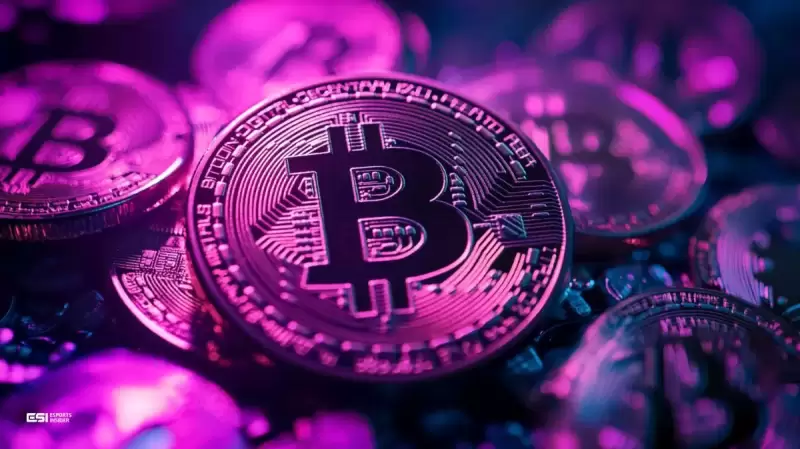 |
|
 |
|
 |
|
 |
|
 |
|
 |
|
 |
|
 |
|
 |
|
 |
|
 |
|
 |
|
 |
|
 |
|
 |
|
Cryptocurrency News Articles
EU's Crypto Crackdown Sparks Privacy Concerns: Ban on Anonymous Accounts
Mar 25, 2024 at 09:04 pm
The European Union has implemented regulations prohibiting anonymous cryptocurrency accounts to combat money laundering and terrorist financing. This decision stems from concerns that anonymous accounts facilitate untraceable transactions, posing risks to the financial system. The law notably targets privacy-enhancing cryptocurrencies and anonymous accounts designed to conceal transactions, such as Monero. However, the anonymity protections provided by these accounts raise concerns regarding privacy rights and the potential for censorship, leading to criticism and debates surrounding the balance between financial security and individual freedoms.

EU Restricts Anonymous Crypto Transactions, Raising Concerns about Privacy and Regulatory Overreach
In a sweeping move aimed at combating money laundering and terrorist financing, the European Union (EU) has enacted legislation outlawing anonymous crypto accounts and privacy-enhancing cryptocurrencies. This landmark decision has sent shockwaves through the cryptocurrency community, sparking heated debates about the balance between financial security and individual privacy.
The Rationale: Combating Financial Crime
The European Parliament (EP) maintains that anonymous crypto accounts pose a significant risk to the stability of the financial system. By allowing transactions to occur without identifying the parties involved, such accounts facilitate illicit activities, including money laundering and terrorist financing. Service providers managing these accounts, the EP argues, are unable to adequately assess the risks associated with their clients' transactions.
"Providers of crypto services and crowdfunding platforms are exposed to the misuse of new channels for the movement of illicit money and are well placed to detect such movements and mitigate risks," reads a 329-page document issued by the EP. "The scope of Union legislation should therefore be expanded to cover these entities."
The EP's concerns extend to privacy-enhancing cryptocurrencies and anonymous crypto accounts that allow users to conceal their transactions. Specifically targeted are privacy coins like Monero and zCash, as well as assets anonymized through cryptocurrency mixers. These measures, the EP contends, undermine the effectiveness of anti-money laundering (AML) and counter-terrorist financing (CFT) regulations.
How Privacy Coins Operate
Monero, a decade-old cryptocurrency ecosystem, stands as the most prominent example of anonymous crypto accounts. With a market capitalization of around $2.5 billion, Monero employs a ring signature system to anonymize the value and sender of transactions. This system relies on mixing multiple users' public keys to obfuscate the true origin of the funds.
Monero also utilizes stealth addresses, a unique tool that assigns an automatically generated, one-time address for each incoming transaction. This feature further complicates the identification of the recipient and the transaction itself.
Criticisms and Concerns
The EU's decision has faced significant backlash from privacy advocates and cryptocurrency enthusiasts. Critics argue that the law infringes upon individuals' fundamental right to privacy and undermines the decentralized, censorship-resistant nature of cryptocurrencies.
Patrick Breyer, a member of the EP, condemned the law, expressing that "people have the right to make online payments and donations without their personal transactions being recorded." He further questioned the EU's ability to regulate a global phenomenon like cryptocurrency on a regional level.
The European Data Protection Supervisor (EDPS) has also raised concerns about the law's compatibility with the EU's commitment to human dignity and privacy. The EDPS emphasizes that privacy is both an individual right and a social value, encompassing the right to conduct private transactions.
Contradictions and Exemptions
Despite its stringent stance on anonymous crypto accounts, the EU's new law contains notable exceptions. Unhosted wallet providers, who do not control their users' cryptocurrency wallets, are exempt from the ban. Similarly, hardware and software providers are not subject to these restrictions.
Additionally, the EP document acknowledges the role of civil society organizations in humanitarian and developmental efforts. It cautions financial institutions against using AML/CFT regulations to "justify commercial decisions" related to their clients' activities.
Anonymous vs. Pseudonymous Accounts
It is crucial to distinguish between anonymous and pseudonymous crypto accounts. Traditional bank accounts are neither anonymous nor pseudonymous, as the bank holds the account holder's personal information. Pseudonymous crypto accounts, on the other hand, use alphanumeric addresses that allow for the tracking of transactions. However, these addresses do not directly reveal the user's real-world identity.
Benefits and Drawbacks of Anonymous Transactions
Anonymous crypto accounts offer a range of benefits to users, including enhanced privacy, protection from censorship, and the ability to evade excessive taxation. Many individuals and entities seek anonymity to safeguard their financial interests and personal data.
However, anonymous crypto accounts also present potential risks, including the facilitation of illegal activities such as money laundering. They can also be more time-consuming and expensive to process than traditional transactions. Additionally, many exchanges impose limits on the amount of funds that can be held in anonymous crypto accounts without verifying the user's identity.
Difficulties in Enforcement
Implementing the EU's new law poses significant practical challenges. Users can create multiple wallets to obscure their activities, making it harder for authorities to trace transactions. Moreover, the law only applies within the EU, and many individuals can easily relocate outside the jurisdiction to avoid compliance.
Patrick Hansen, an industry expert, believes that the new law primarily reiterates existing AML regulations and does not impose substantial restrictions on self-custody wallets, payments, or peer-to-peer transfers. He predicts that the law will have a limited impact on the crypto market within the EU.
Conclusion
The EU's ban on anonymous crypto accounts and privacy coins marks a significant shift in the regulatory landscape for cryptocurrencies. While the law aims to combat illicit activities and protect the financial system, it raises concerns about privacy, individual autonomy, and the effectiveness of regional regulations in a globalized digital economy. The implementation of the law faces challenges, and its long-term effects remain to be seen. However, it is clear that the debate over the balance between financial security and personal privacy will continue to shape the development of cryptocurrency regulations worldwide.
Disclaimer:info@kdj.com
The information provided is not trading advice. kdj.com does not assume any responsibility for any investments made based on the information provided in this article. Cryptocurrencies are highly volatile and it is highly recommended that you invest with caution after thorough research!
If you believe that the content used on this website infringes your copyright, please contact us immediately (info@kdj.com) and we will delete it promptly.
-

-

- Two Ondo Finance wallets transferred 13.83 million tokens worth $12.2 million into Coinbase Prime about four hours ago.
- Apr 11, 2025 at 06:40 am
- Ondo Finance continues to build on a wider industry trend in their ecosystem through their recent token deposit at Coinbase Prime which provides insights about their token accumulation and flow management strategies.
-

-

-

-

-
![The downtrend of Hyperliquid [HYPE] has not halted The downtrend of Hyperliquid [HYPE] has not halted](/assets/pc/images/moren/280_160.png)
-

-


















![🐢Super Mario World Koopa Troopa 100% 96⭐️ + Coin [Ao Vivo] 🐢Super Mario World Koopa Troopa 100% 96⭐️ + Coin [Ao Vivo]](/uploads/2025/04/10/cryptocurrencies-news/videos/super-mario-koopa-troopa-coin-ao-vivo/image-1.webp)








































![The downtrend of Hyperliquid [HYPE] has not halted The downtrend of Hyperliquid [HYPE] has not halted](/uploads/2025/04/11/cryptocurrencies-news/articles/downtrend-hyperliquid-hype-halted/middle_800_480.webp)

